
Producing over 40% of teachers in South Africa
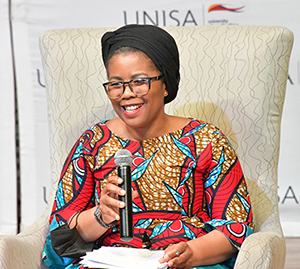
Prof Puleng LenkaBula, Principal and Vice-Chancellor, Unisa
Speaking at the ZK Matthews Great Hall, Prof Puleng LenkaBula, Principal and Vice-Chancellor (VC) of Unisa, said: "The dialogical relationship that Charlotte Mannya-Maxeke had with Dr William Edward Burghardt Du Bois was quite important in an epistemic environment in the context of global contestations of the dignity first and foremost of black people as human beings".
She participated in a dialogue organised by Unisa’s College of Education in partnership with the Charlotte Mannya-Maxeke Institute and the Department of Sport, Arts and Culture on 28 October 2021.
The dialogue gauged the student-teacher relationship between Mannya-Maxeke and Du Bois at the Wilberforce University in the United States. The event acknowledged the 150th anniversary of the birth of Mannya-Maxeke, which saw government declare 2021 as the Year of Charlotte Mannya-Maxeke.
Mannya-Maxeke was the first black woman to graduate with a university degree in South Africa, earning a BSc from Wilberforce University in 1901. She was a leading social and political activist. Du Bois, on the other hand, was an American sociologist, socialist, historian, civil rights activist, Pan-Africanist, author and editor.
Opening the dialogue, the VC explored the role of women in the academic space. She cautioned the audience about trajectories that continue to misunderstand the integrity and intelligence of women participating in the development of knowledge systems and civilizations, and also in the expression of social sciences, art and music as important levers for transformations of society.
Other speakers at the event included Prof Somadoda Fikeni, Commissioner of the Public Service Commission, and Bishop Ronnie E Brailsford, Presiding Prelate of the 19th Episcopal District of the A.M.E. Church South Africa, who is an Affiliate of Wilberforce University.
In her address, the VC emphasised the importance of the dialogical relationship between Mannya-Maxeke and Du Bois by narrating that it speaks to the idea that education is a resource for transformation enabling human encounters for the benefit of changing society for the better.
She drew attention to the historical, political, economic and global contestation of white supremacy of civilizations that never identified black people as human beings. She urged the audience to think about the transitions of slavery, liberation and articulation of civil rights. According to her, it is important to understand the French Revolution and its emancipatory project of black people in a global economic context that never saw Africans as human, but rather as chattel.
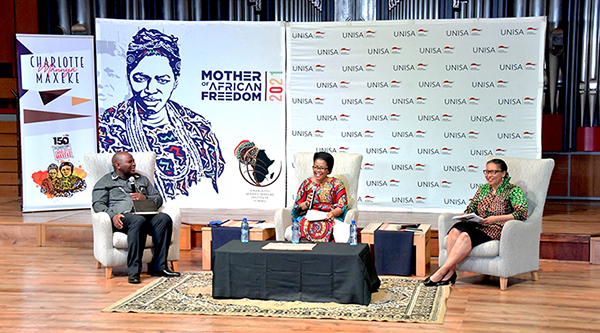
Prof Somadoda Fikeni, Commissioner of the Public Service Commission, Prof Puleng LenkaBula, Unisa's VC and the dialogue moderator, Febe Potgieter-Gqubule, General Manager: Elections of the African National Congress
Furthermore, the VC said success in an African context is not measured by individual development or flourishing but it is measured by the collectivists interest in the structure of justice. She said the philosophy of being an African reminds one that your being, my being and the ecology that we exist within are inexorably bound, hence Mannya-Maxeke uttered the words "as I rise, I must rise with others and as I gain benefit, I must ensure that it manifest into the whole community".
During the dialogue, Fikeni said that he perceived both Mannya-Maxeke and Du Bois as consequential leaders not just in the 20th century but also as people who transcended in their confinements during the time they lived and led. He described Du Bois as prophetic in predicting the issue of colour line and the Black Lives Matter movement. He said these are the type of leaders who transcended time, space and identity in many ways because they represented the best of human values. "They were pioneers chartering new frontiers as global Africans," Fikeni said.
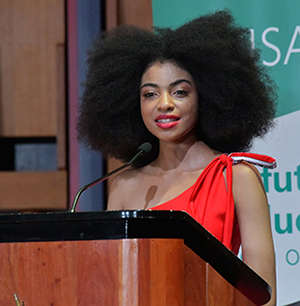
Zulaikha Patel, activist and ambassador to the Charlotte Mannya-Maxeke Institute
Looking at their lives in the context of education today, Fikeni said that he perceived their leadership as activists engaged scholars and intellectuals who are driven by search for solutions to human problems versus career scholars who are chasing the number of articles in order to get recognition from the Senate to get promoted. He said that the lives of intellectuals running after recognition end with the obituary because there is no legacy beyond their lives.
Fikeni expressed his belief that Mannya-Maxeke and Du Bois were the ultimate public intellectuals who used their knowledge contextually, hence they made a difference in their country with the resources they had. He said: "They were acting locally but thinking globally about the African condition." His presentation re-examined academic enterprise, and the meaning of scholarship not just at university level but also at basic level.
Brailsford encouraged the audience to know their identity as Africans. Sharing his higher education experiences as a black student, Brailsford said, "Despite racism, I knew who I was — I did not wait for other people to define me, and the main aim was to acquire education. We should remember who we are as Africans."
The dialogue succeeded in not only examining the life and legacy of Mannya-Maxeke as a woman leader, but also the lessons learnt from the student-teacher relationship she had with Dr William Edward Burghardt Du Bois.
* By Lesego Chiloane-Ravhudzulo, Journalist, Department of Institutional Advancement
Publish date: 2021-11-03 00:00:00.0
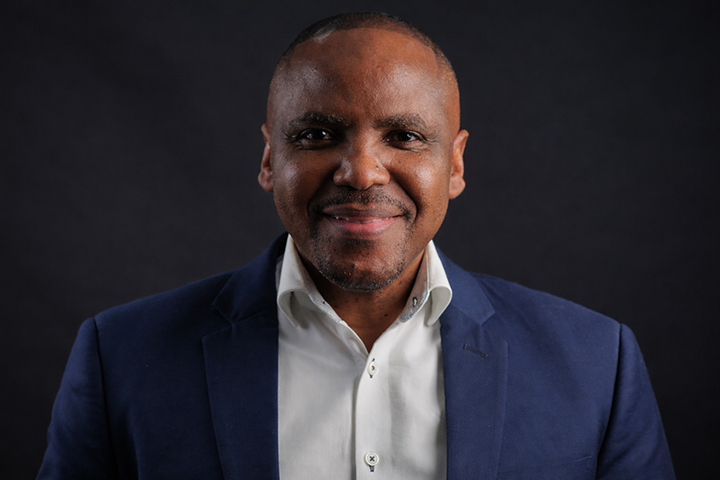 National leader in mathematics education aims to improve outcomes
National leader in mathematics education aims to improve outcomes
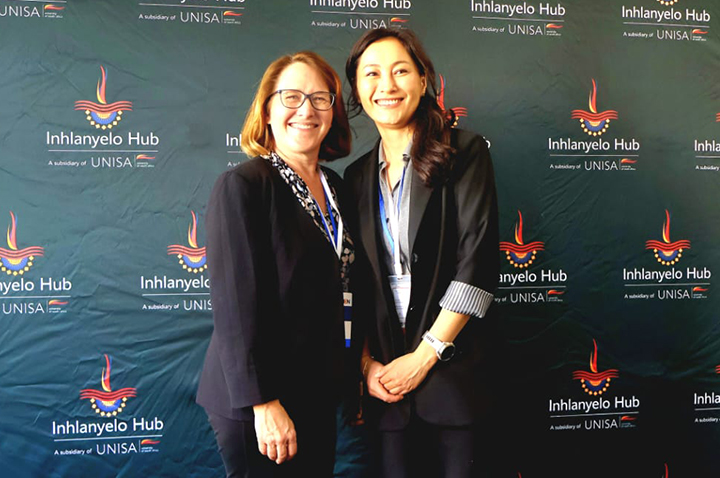 Unisa roundtable focuses on empowering SA women to lead in innovation
Unisa roundtable focuses on empowering SA women to lead in innovation
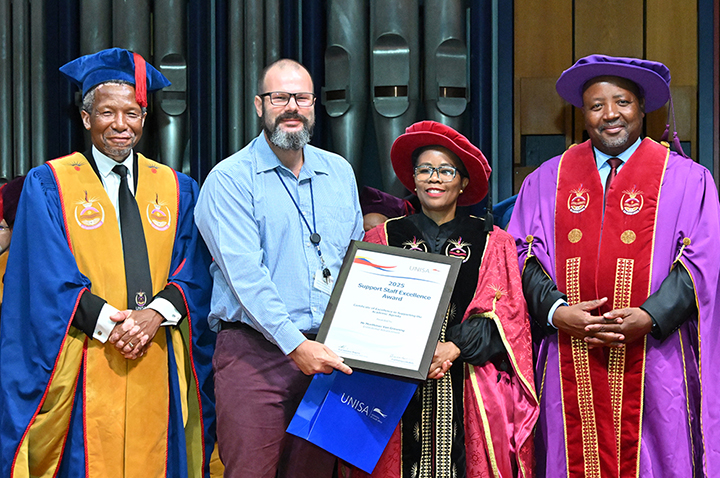 Unisan recognised for web excellence
Unisan recognised for web excellence
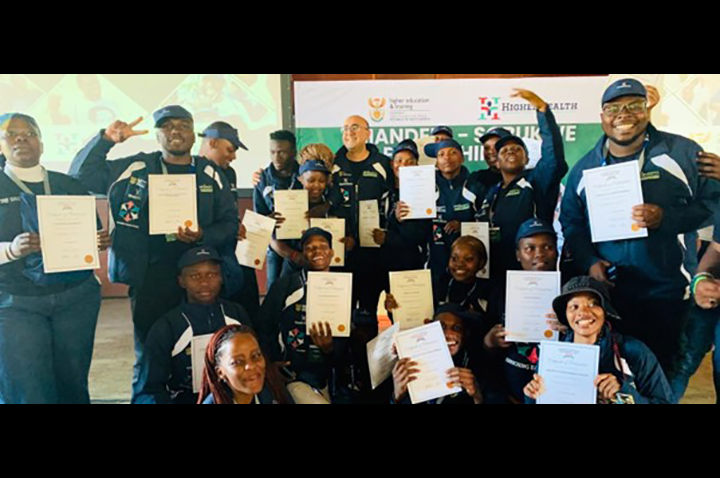 Office of the Dean of Students participates in leadership camp
Office of the Dean of Students participates in leadership camp
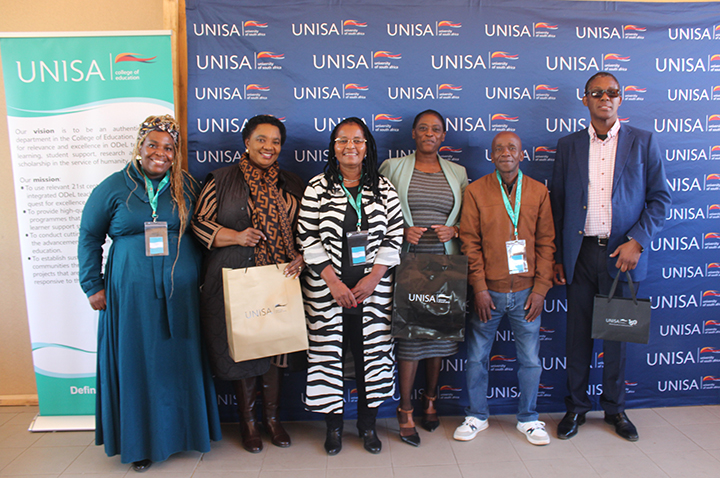 Unisa project fosters digital and pedagogical innovation in Limpopo schools
Unisa project fosters digital and pedagogical innovation in Limpopo schools